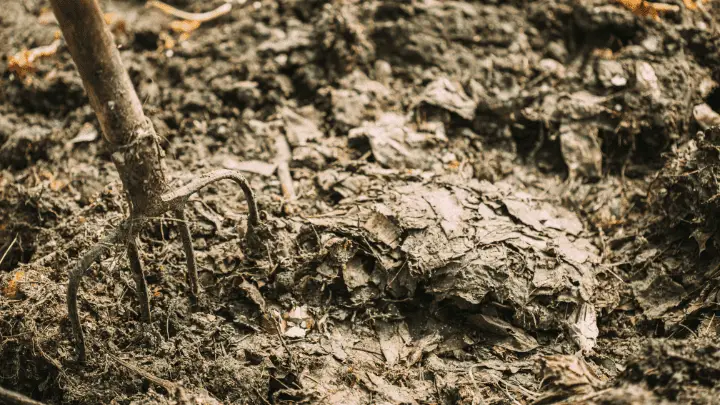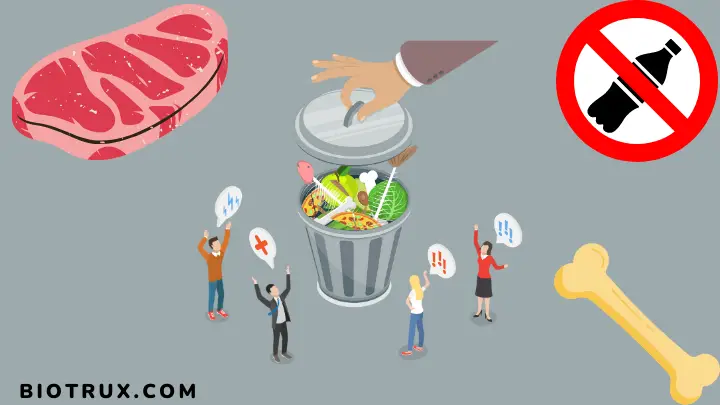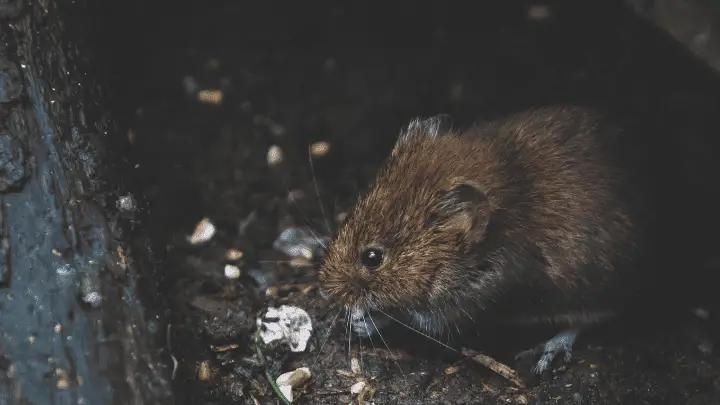Hey there, are you ready to take your compost pile maintenance game to the next level? Look no further because I’ve got you covered.
In this article, I’ll discuss all the essentials of compost pile maintenance, including common mistakes to avoid and troubleshooting tips for any issues that may arise. Composting is an excellent way to reduce waste while creating nutrient-rich soil for your garden.
However, maintaining a healthy compost pile can sometimes be daunting. That’s why I’m here to break it down for you in simple terms and provide some helpful tips.
Whether you’re a seasoned composter or just starting, this article will have something for everyone. So grab your gardening gloves and dive into the wonderful world of composting.
Compost Pile Maintenance: The Essentials

1. Understanding the composting process
Composting is the natural breakdown of organic matter by microorganisms. The process involves three key components: carbon-rich brown material, nitrogen-rich green material, and water.
These mixed components provide an ideal environment for microorganisms to break down the materials and produce rich, fertile compost. To ensure your compost pile is functioning properly, it’s important to regularly add these components and maintain a proper balance of moisture and air.
Understanding this process will help you maintain a healthy compost pile and produce high-quality compost for your garden.
2. The importance of choosing the right location
A well-placed compost pile will improve your compost’s quality, minimize odors, and reduce pest problems. The ideal location for your compost pile should be in a shaded area with good air circulation, away from direct sunlight and any structures.
Additionally, it should be situated on level ground with easy access to water. It should also be close to where you generate the most compostable materials.
Taking the time to choose the right location for your compost pile can make a big difference in the success of your composting efforts.
3. Building the compost pile and achieving the right balance
Creating a well-structured compost pile is essential for efficient composting. Layer brown materials (carbon-rich) like dry leaves, straw, or cardboard with green materials (nitrogen-rich) such as kitchen scraps, grass clippings, and coffee grounds.
Add compost starter or garden soil to introduce beneficial microorganisms. Maintaining the right balance of brown and green materials is crucial.
Aim for a carbon-to-nitrogen (C:N) ratio of approximately 25-30:1. Too much carbon slows down decomposition, while excess nitrogen leads to a smelly, anaerobic compost pile.
4. Proper aeration and moisture levels
To maintain a healthy and productive compost pile, it is essential to have proper aeration and moisture levels. Aeration ensures that oxygen is present in the compost pile, which allows beneficial microorganisms to thrive and break down the organic material.
Regularly turning the compost pile with a pitchfork can help with aeration and eliminate foul odors. On the other hand, moisture is crucial for microorganisms to do their job effectively.
It is important to keep the compost pile damp but not soaking wet. Regularly checking the moisture level with a moisture meter can help ensure optimal levels. A good rule of thumb is to aim for a damp sponge consistency when adding water to your compost pile.
5. Compost pile management in different seasons
Compost pile maintenance varies with the seasons. In colder months, insulate the pile with straw or a tarp to retain heat. In warmer months, ensure sufficient aeration and moisture to avoid drying out.
It’s important to turn the pile regularly to aerate it and distribute moisture and heat evenly in all seasons. Proper management throughout the year can lead to rich, fertile compost for your garden or lawn.
Compost Pile Maintenance: Common Mistakes to Avoid

1. Neglecting regular turning
Turning the compost pile is an important step to ensure that oxygen is evenly distributed throughout the pile. This is crucial for the composting process and the breakdown of organic matter efficiently.
Neglecting regular turning can lead to the formation of anaerobic conditions, which can slow down the composting process and result in unpleasant odors. Therefore, it’s important to turn your compost pile at least once a week to maintain optimal conditions for decomposition.
2. Adding meat, dairy, or grease
One of the most common mistakes people make during compost pile maintenance is adding meat, dairy, or grease. These items can attract rodents and other pests, creating an unpleasant environment for your compost pile.
Additionally, they take longer to break down and can create unpleasant odors. Instead, stick to adding fruit and vegetable scraps, leaves, and other yard waste.
3. Adding things that won’t break down
It’s important only to add organic matter that can decompose easily and contribute to creating rich, fertile compost. Items like dairy, plastics, and bones should be avoided, and anything treated with chemicals.
In addition, avoid adding large branches or woody materials that can take a long time to decompose. Only adding the right materials can ensure a healthy compost pile that will provide excellent nutrients for your garden.
4. Always adding to your compost pile
One common mistake people make during compost pile maintenance is constantly adding to it without giving it time to break down. While continually adding organic matter may seem like a good idea, it can slow composting.
Instead, wait until the pile has broken down significantly before adding new material. This will help ensure your compost is properly decomposed and ready for use in your garden.
5. Using chemical pesticides and herbicides
Another mistake to avoid during compost pile maintenance is chemical pesticides and herbicides. These products can be harmful to the beneficial bacteria and insects that aid in the composting process.
Additionally, they can leave behind toxic residues that can negatively impact the health of plants and soil. Instead, opt for natural pest control methods, such as companion planting or introducing beneficial insects.
Common Issues in Composting and Troubleshooting Tips

1. Foul odors and their causes
One of the most common issues in composting is the foul odors that can develop. These odors are usually caused by the decomposition process of organic materials, such as food waste and leaves, and can be unpleasant.
To prevent these odors, it is important to maintain a good balance of carbon and nitrogen-rich materials in your compost pile. Additionally, regularly turning your compost pile and keeping it moist can help prevent foul odors.
If the odor persists, add a layer of dry leaves or wood chips to absorb moisture and help with aeration.
2. Managing pests and rodents around the compost pile
Another common issue in composting is the invasion of pests and rodents. These critters are attracted to the organic materials in the pile and can cause damage to your compost system. To manage these pests, keeping your compost pile well-maintained is essential.
Ensure that the pile is not too wet or dry, and cover the food waste with a layer of leaves or dry grass clippings. You can also use mesh covers or fencing to keep out larger animals. Also, avoid composting meats, fats, and oils, which attract rodents.
Regularly turning the compost pile can also discourage pests and help maintain the optimal conditions for decomposition.
3. Strategies for speeding up slow decomposition
One common issue with composting is slow decomposition. To speed up the process, ensure you have a good mix of nitrogen and carbon-rich materials. You can also chop large materials into smaller pieces.
Furthermore, you can turn the compost pile regularly to aerate it and add compost activators or manure to jumpstart the decomposition process. Additionally, avoid adding materials that won’t break down easily to the compost pile, as these can slow down decomposition.
If these strategies don’t work, consider adjusting the moisture level of the pile or adding more worms to the compost to help break down the materials.
4. Weed seeds surviving composting
Lastly, a common issue during compost pile maintenance is that weed seeds may survive composting. This can be frustrating, as it defeats the purpose of creating nutrient-rich soil if it’s still full of weeds.
To avoid this, it’s important to ensure your compost pile reaches a high enough temperature, at least 140°F (60°C), to kill any weed seeds. Additionally, it’s a good idea to avoid adding any weed plants or seeds to the pile in the first place.
If you end up with weed seeds surviving composting, try sifting your compost to remove any visible seeds before using them.
FAQs
Can you compost citrus peels and onion skins?
Yes. Both citrus peels and onion skins can be added to your compost pile. However, since they take longer to break down, chopping them into smaller pieces is recommended to speed up the process.
How long does it take to get usable compost?
The composting process can vary between 2 to 6 months, depending on different factors like the composting techniques, materials employed, and environmental conditions.
Can you compost pet waste?
To ensure safety, it is advisable to refrain from composting pet waste in your standard compost pile due to the presence of dangerous pathogens. It is recommended to utilize a different composting system solely for pet waste.
Can you compost weeds?
It is possible to compost weeds, but it is best to avoid using those that have mature seeds. This is because they may be able to survive the composting process and potentially grow in your garden later on.
Can you compost diseased plant material?
To prevent the spread of pathogens, it’s recommended to refrain from composting diseased plant material. Instead, it’s best to dispose of these plants at municipal green waste facilities.
Wrapping Up
Congratulations, you’ve reached the end of the compost pile maintenance journey. But what’s left to do now that your compost pile is up and running? First, keep an eye on your compost pile’s moisture levels.
Too much water can drown the bacteria that break down your compost, while too little can slow down the process. Use a pitchfork to turn the pile regularly and keep it aerated. This helps the bacteria breathe and break down the compost faster.
Second, remember to add the right ingredients to your compost pile. Avoid adding meat, dairy, and oily foods, as they can attract pests and slow decomposition. Instead, mix “green” and “brown” materials, such as fruit and vegetable scraps, grass clippings, and leaves.
Finally, be patient. Composting is a slow process, and it can take several months before your compost is ready to use. But trust me; the result is worth the wait. So keep up with your compost pile maintenance, and enjoy the benefits of enriching your garden soil with nutrient-rich compost. Happy composting!
Do you have limited space but want to compost? Learn more about composting in small spaces.
Thanks for reading.
